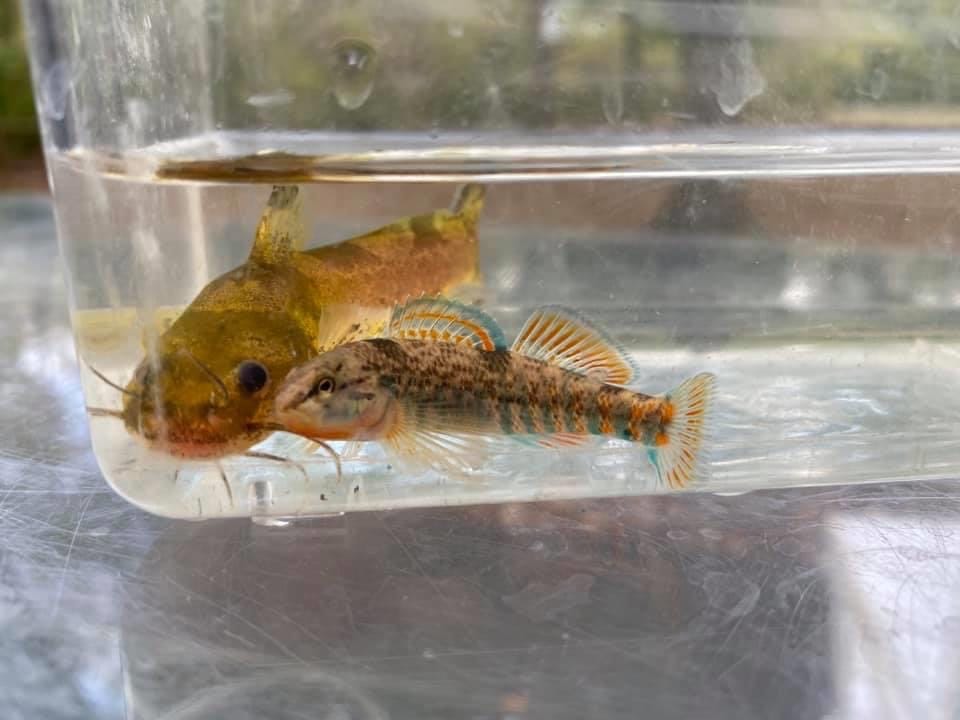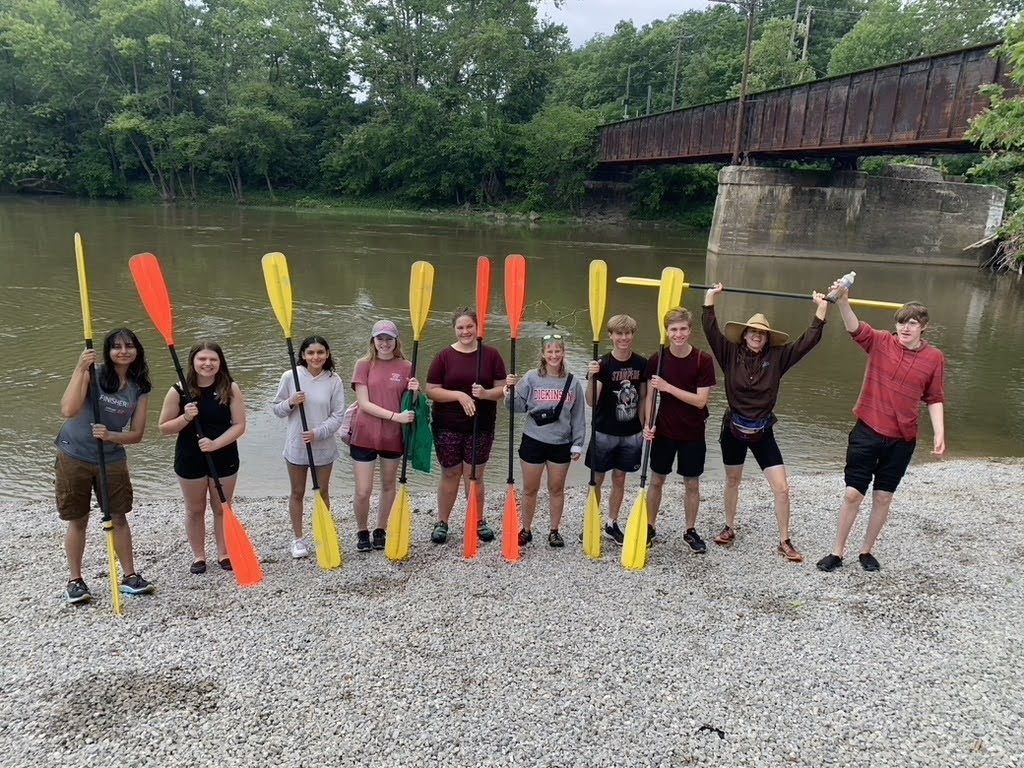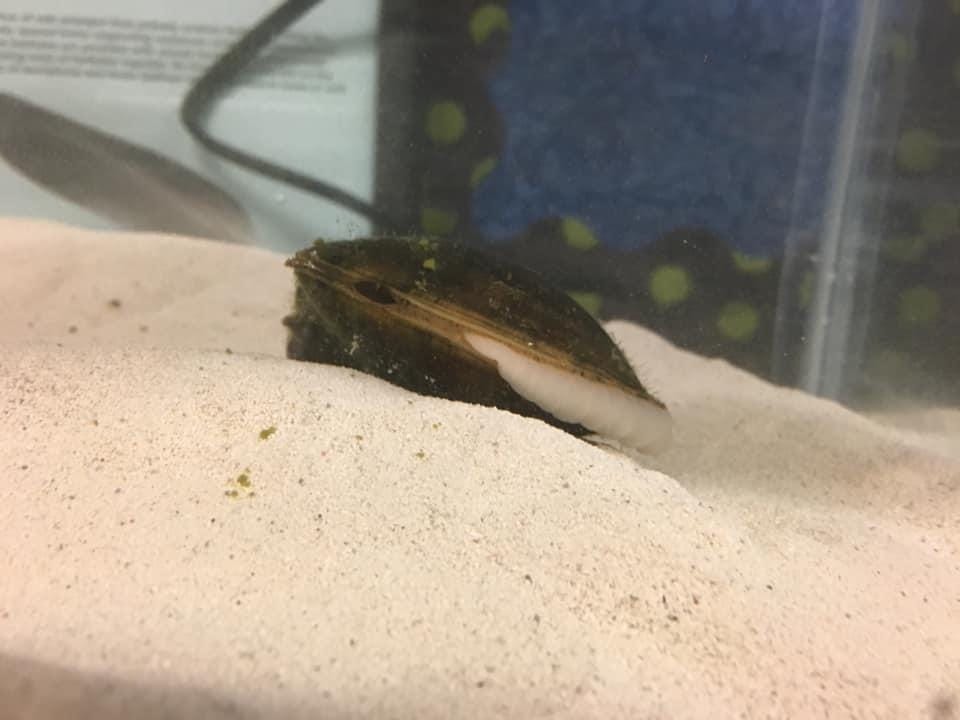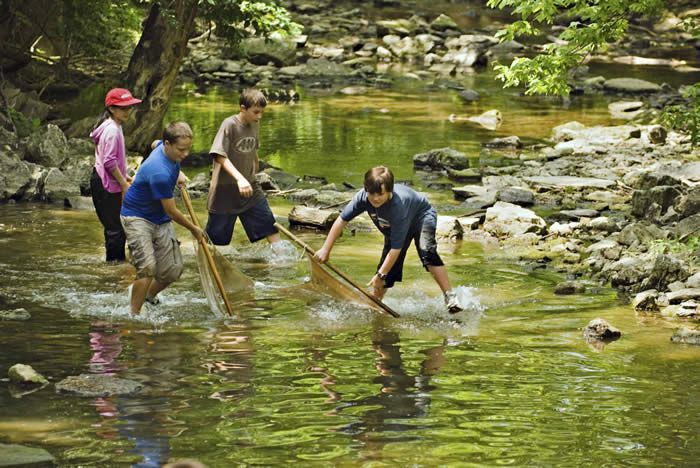
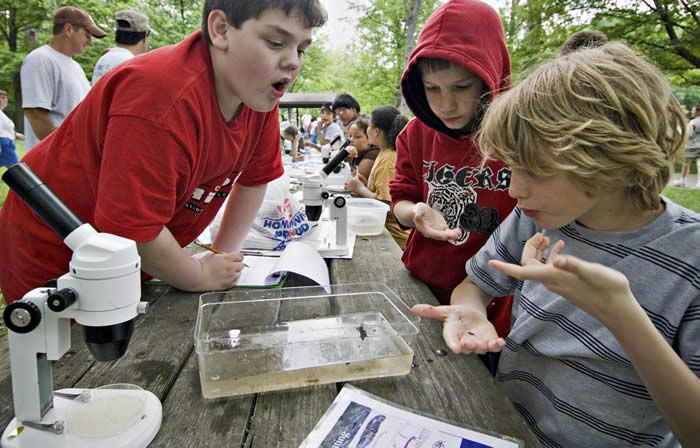
River Explorer is an innovative, inquiry-based, outdoor learning lab that provides experiential, environmental-focused STEM education about the Ohio River and its watershed, in Ohio, Indiana and Kentucky. Thousands of students participate each year.
River Explorer is offered in Greater Cincinnati to grades four through 12 and meets state curriculum requirements for Ohio, Kentucky and Indiana.
Using nets, live specimens and field-grade equipment, students are junior scientists for the day during this exciting learning experience. This hands-on education program is designed to help children learn about the ecology and importance of the Ohio River, its tributaries and its watershed. Classes are taught in and along the rivers, streams and creeks in the watershed in Ohio, Indiana and Kentucky. Every year, thousands of students are River Explorers!
Learning station activities connect the concept of watersheds to school STEM core content, teach students about Ohio River watershed ecology, and involve students in water quality and ecology projects to foster development of environmental stewardship ethics. Students learn about the differences, structures, and interactions between and in aquatic and terrestrial ecosystems and how they function in a watershed. The experience is guaranteed to make students look at the world in a new light!
Activities incorporate discussions of the relationship between food web, habitat and chemistry concepts. Classes rotate through three learning stations:
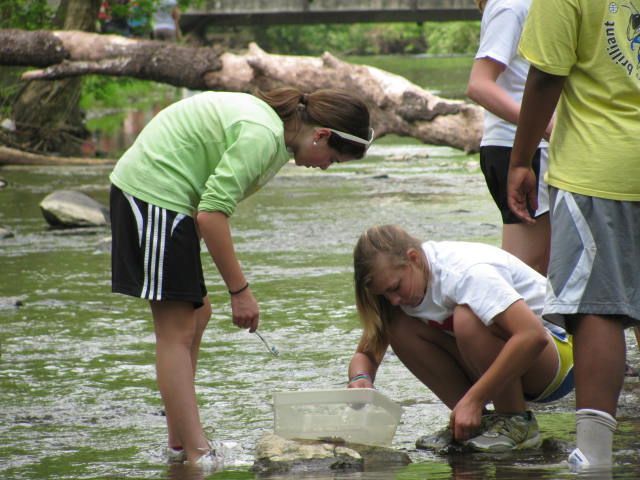
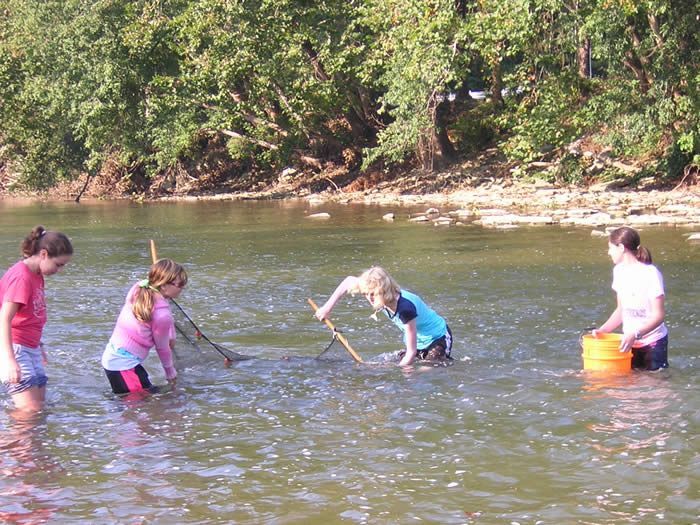
Seining and Fish Study (all grades) – Working in small teams, students help pull the seine net out of the river and retrieve whatever they’ve caught. Depending upon the students’ height and site location, they may get wet up to their knees or waist. Students examine fish adaptations using aquariums stocked with “the catch of the day” collected by the children during the seining activity.
Aquatic Macroinvertebrate Study (all grades) – Students collect macroinvertebrates, which they then identify to determine the number of species present in the habitat. That information will help them make assessments about the health of the river or stream they’re exploring.
The third station varies depending on the students’ grade level.
. 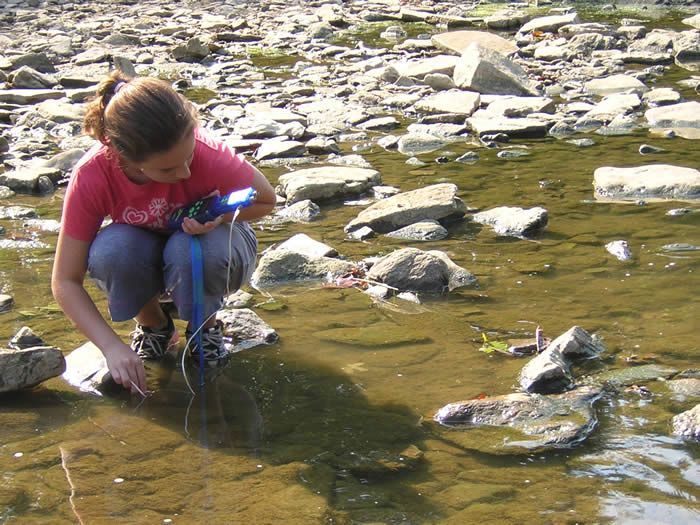
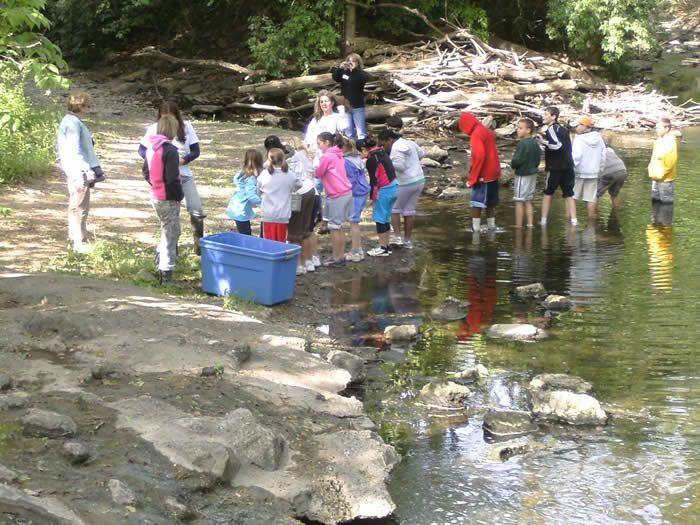
River Chemistry (grades 6-12): Students test samples of river water for oxygen, temperature and other characteristics. In doing so, they learn why these parameters are so important to river health and species longevity and vitality.
Water Use and Water Cycle (grades 4-5): Through interactive demonstrations and group activities (such as a “bucket brigade”), students learn the Ohio River hydrologic cycle and the impact human activities have on the health of the river.
To help students more fully understand the relationships between chemistry, macroinvertebrate and fish samplings and their related findings, we use habitat assessment tools for student in grades six-12.
Locations:
Greater Cincinnati
- (Loveland, OH) Nisbet Park – Little Miami River
- (Loveland, OH) Lake Isabella Park – Little Miami River
- (Batavia, OH) Sycamore Park – Little Miami River
- (Sharonville, OH) Sharon Woods Park – Sharon Creek (60 student max limit)
- (Guilford, IN) Guilford Bridge Park -Tanners Creek .
- (Covington, KY) Pioneer Park – Banklick Creek
(We are constantly considering new locations that are proximate to schools that register for a field trip. If you would like a field trip and can suggest a new location for consideration please let us know!)
Pricing:
$6 per student. Minimum fee is $200.
A limited number of reduced-fee trips are offered to qualified schools. Please contact us for more information. Bussing is not included nor reimbursed.
Sign up for a Trip:
To schedule a field trip, please complete the online application. Instructions for completing the application, including group sizes, minimum age and pricing information, are available on this website. Submit Application here. Trip dates are limited and are available on a first-come, first-serve basis. Don’t delay … reserve your date today!

